Recovering files that have been overwritten can be a challenging task, as the new data has likely replaced the old data on the storage device. However, there are still some methods you can try to restore the lost files, though the success rate may vary depending on the situation. Here are some steps you can follow to attempt file recovery after overwrite:
1. Stop Using the Device Immediately
As soon as you realize that files have been overwritten, stop using the storage device immediately. Continuing to write new data to the device can further damage the old data and reduce the chances of successful recovery.
2. Use Data Recovery Software
Specialized data recovery software can help you retrieve overwritten files. These tools scan the storage device for recoverable data and attempt to restore it. The following is an example of Panda data recovery.
Procedure to restore accidental deletion:
Step 1 Go to earch for the keyword "Panda data recovery" to install, and don't take screenshots because of the simple steps.
Step 2: Select the corresponding recovery mode, such as "Accidental Deletion Recovery" or "Accidental Formatted Recovery"
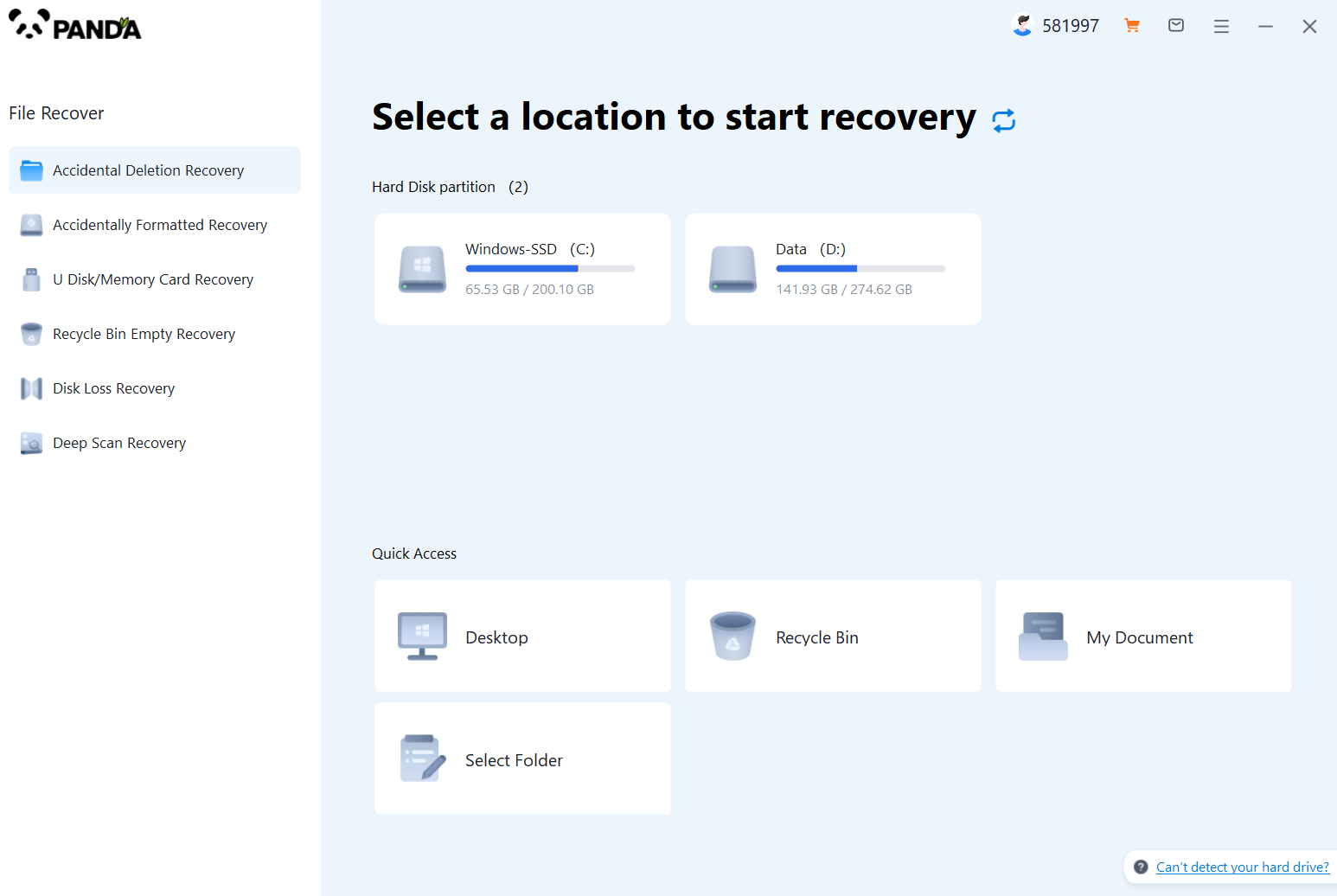
Step 3: Select the hard disk location where the file is located.

Step 4: Select the file type and click "Start Scan"
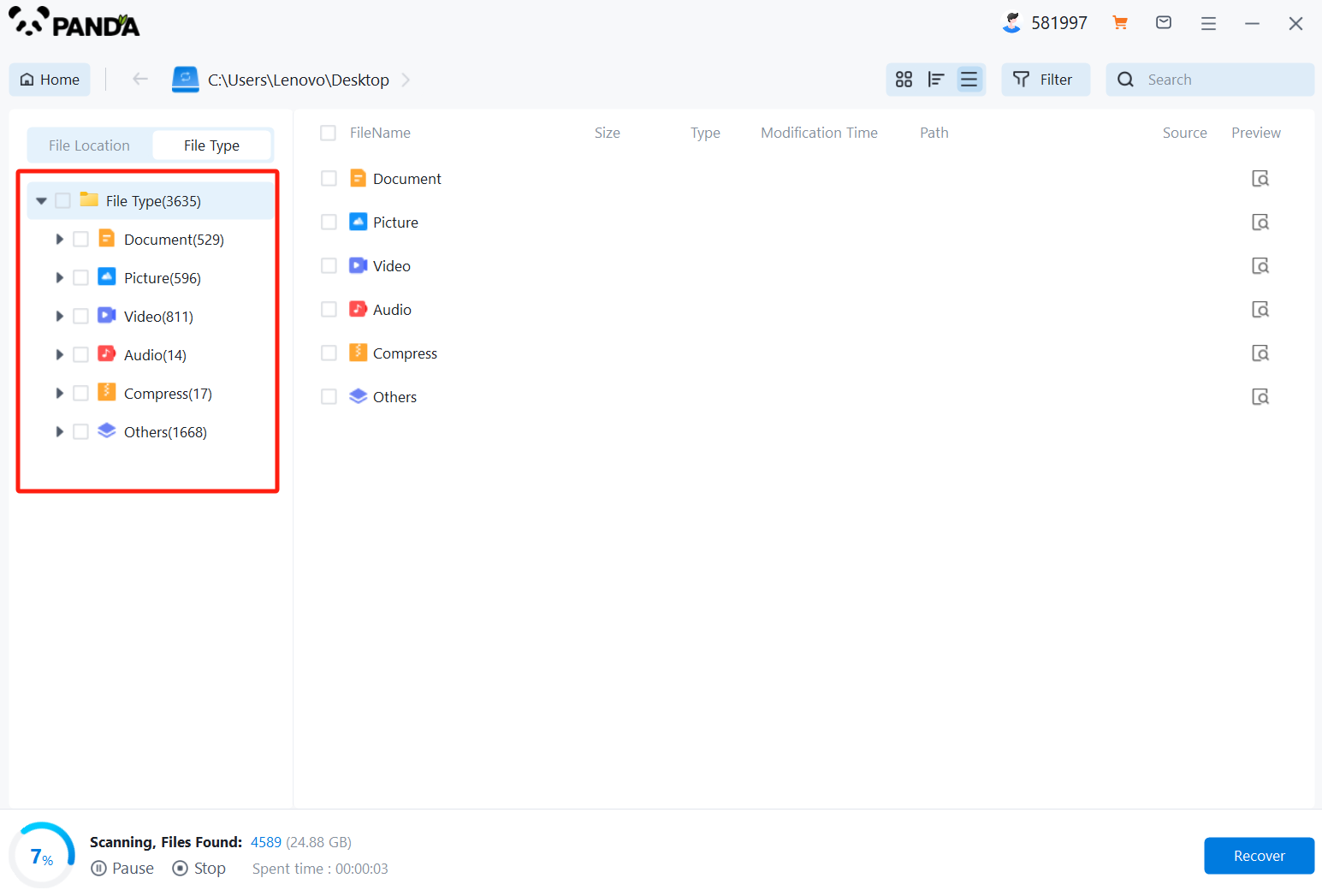
Step 5: Check the files to be recovered in the file type, you can click on the preview mode to see the file contents, and then click "Recover"
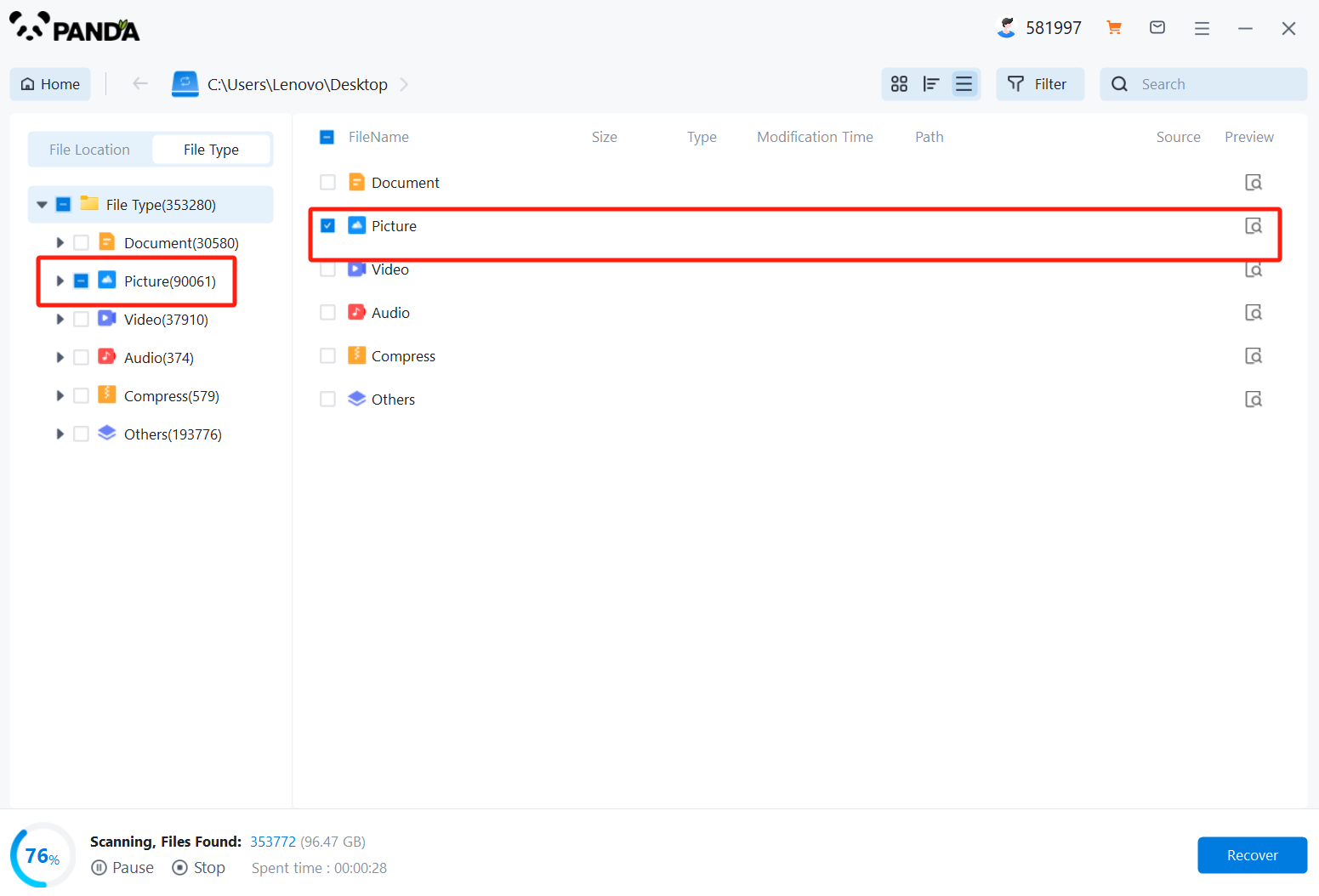
Step 6: Click "Select Directory", select the location where the file is saved, please do not select the partition where the data is located to avoid data overwriting, and then press "Export"
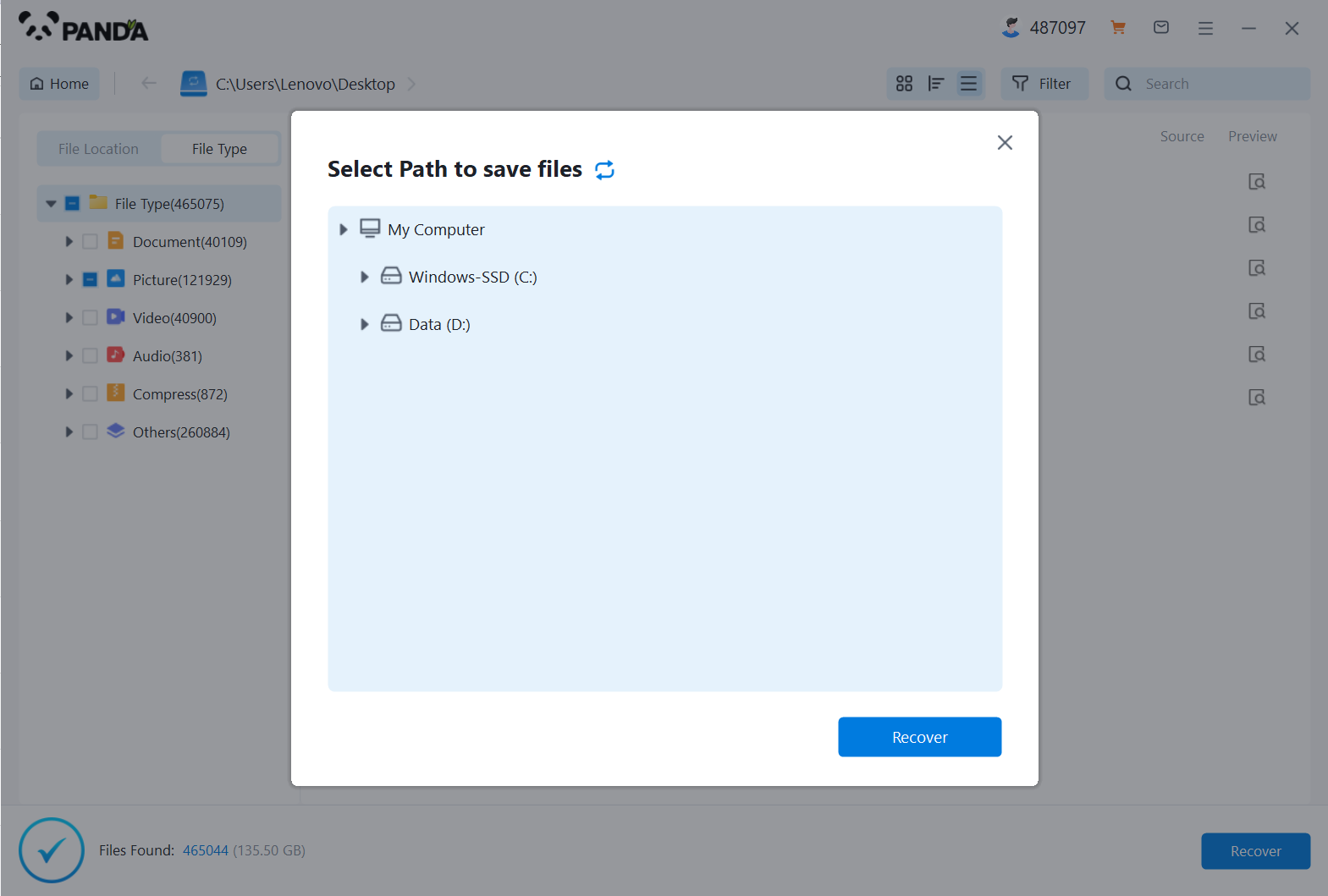
Step 7: Click "Open Output Directory" to check whether the file is restored completely
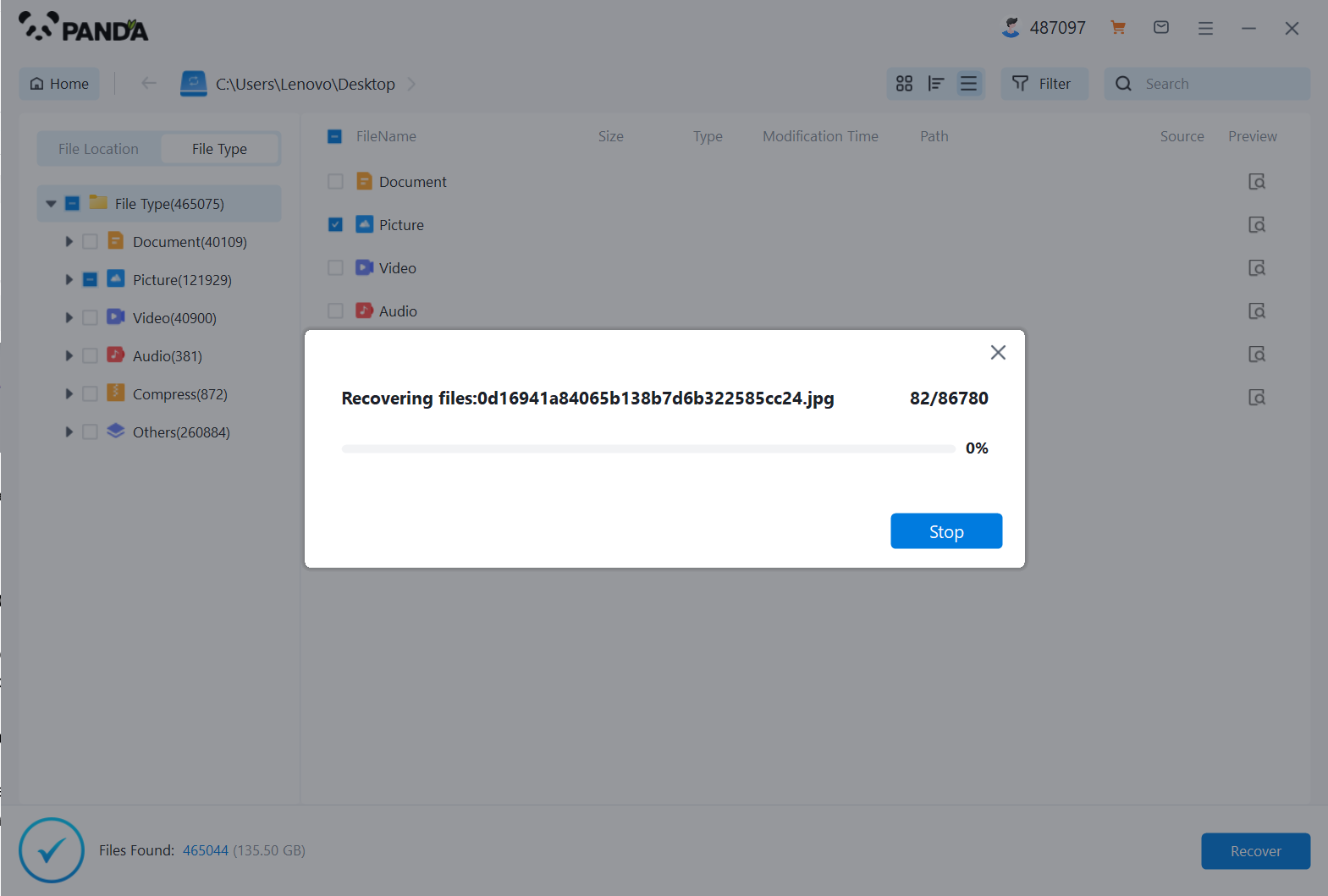
3. Consider Professional Services
If you're unable to recover the files using data recovery software, you may need to consider professional data recovery services. These services use advanced techniques and equipment to retrieve lost data from storage devices. However, they can be expensive and may not guarantee a successful recovery.
4. Prevent Future Overwrites
To prevent future overwrites and data loss, take the following preventative measures:
- Regularly backup important files: Create backups of crucial files and store them in a safe location, such as a cloud storage service or an external hard drive.
- Use reliable storage devices: Purchase storage devices from trusted brands and avoid using devices that show signs of damage or malfunction.
- Be cautious with deletions and overwrites: Double-check before deleting or overwriting files to ensure you don't accidentally lose important data.
In conclusion, recovering overwritten files can be difficult, but it's still possible with the right tools and techniques. By using data recovery software, considering professional services, and taking preventative measures, you can increase the chances of successfully restoring lost files.





